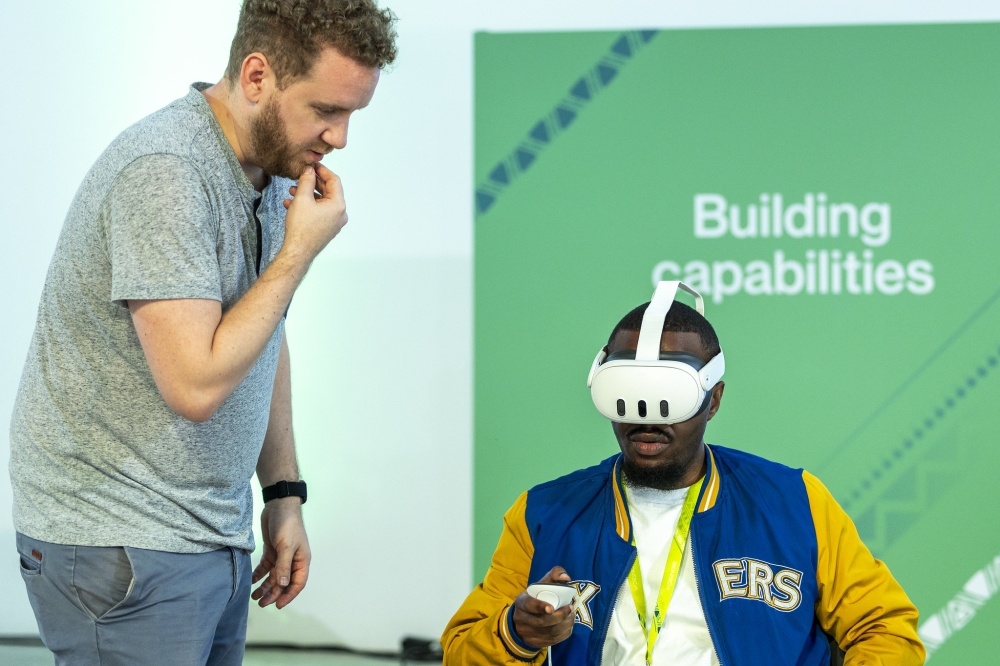

Rwanda is continuing to embrace new technologies. Every year, the people’s use of new tech solutions increases in order to ease their work and other aspects of their lives.
As 2025 unfolds, The New Times takes a look at some four technologies that could become of more use to Rwandans.
-
Interconnected payment systems
This year, National Bank of Rwanda (NBR) will prioritise efforts to connect various cashless payment systems used in the country, which will result in reduced transaction charges.
ALSO READ: Central bank to harmonise all cashless payment systems for interoperability
This "interoperability switch” will act as a bridge, allowing transactions and data to flow between various payment systems (for example, bank accounts, mobile money wallets, credit/debit cards, or digital currencies) even if they are based on different technologies or standards.
It aims to enhance the efficiency, security, and accessibility of digital payment methods across the financial system.
Governor of the central bank, John Rwangombwa, said they are optimistic that transaction costs will drastically decrease due to such a development.
-
Personalised AI
Last year, many Rwandans, just like their counterparts across the world, jumped on the bandwagon of using Artificial Intelligence (AI) to ease their work.
This year, AI technologies are expected to become more developed and personalised.
Personalised AI are systems that analyse users’ data and use the information to provide personalised solutions that align with the person’s needs, behaviours, and preferences.
Personalised AI learns over time to be able to serve its purpose and provide a top-notch user experience.
ALSO READ: Rwandan e-mobility firm secures Rwf300m to expand fleet
Philbert Murwanashyaka, an entrepreneur with experience in AI projects, called upon the government to support AI innovation as it would lead to the creation of systems that understand Kinyarwanda.
"Our government is building the framework that allows innovation in fields like AI. This could enable personalised AI to address local challenges with systems that understand Kinyarwanda and local contexts,” he noted.
He highlighted how personalised AI can positively affect healthcare by putting together all the health information of a particular patient in order to tailor the treatment plan according to the person’s lifestyle, behaviour, and genomics.
-
Increased e-mobility
The government is working to increase the use of electric vehicles(EV), and this is going to get even more serious this year as registration of petrol-powered motorbikes has been halted.
The registration halt, which took effect this January, is part of the government’s efforts to encourage a shift from petrol-powered vehicles to electric vehicles and also fight vehicle-induced air pollution.
In an interview with The New Times, Josh Whale, CEO of Ampersand, one of the leading e-mobility companies in Rwanda, reckoned that with the new policy, 2025 will be the "most transformational year yet” in e-mobility.
"The widespread adoption of electric motorcycles and battery swap stations will further reduce fuel imports and improve urban air quality, leading to more livable cities for Rwandans,” he said.
Whale added that Rwanda’s commitment to e-mobility positions it as a hub for innovation in emerging markets.
"This includes software, AI, rapid battery hardware, and product design and testing. I’ve daydreamed for years about seeing Africa’s EV tech parks, investment communities, and research institutions thrive in Rwanda,” he said.
-
More use of AR/VR
Augmented reality (AR) and Virtual Reality (VR) fall under the umbrella of extended reality(XR) technologies.
These technologies use enhanced three dimensions (3D) to virtually simulate real-world life experiences.
Such technologies are already being used in Rwanda in areas like tourism abv entertainment.
This year in Rwanda, they may be used more, for example to offer practical applications in fields like education, healthcare, and training.
In an interview with The New Times, Nwalahnjie Anye, an XR engineer at MedXR, a Rwandan health AR/VR initiative that delivers medical education services using extended reality technology, emphasized the role of AR/VR in professional training.
"AR/VR allows individuals to take on new roles requiring delicate care and precautions through risk-free simulations. For example, trainees can practice warehouse management or surgical procedures in a simulated environment without real-world consequences,” he said.
He noted that AR/VR would be a life-changing technology in institutions with little or no physical practicing equipment or facilities.


